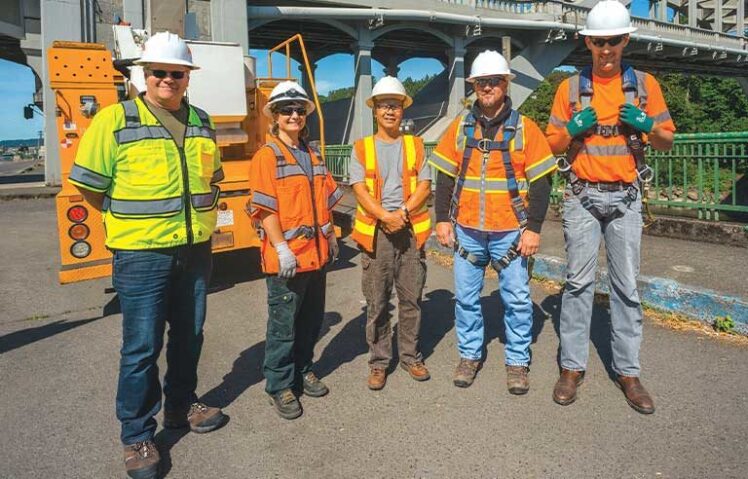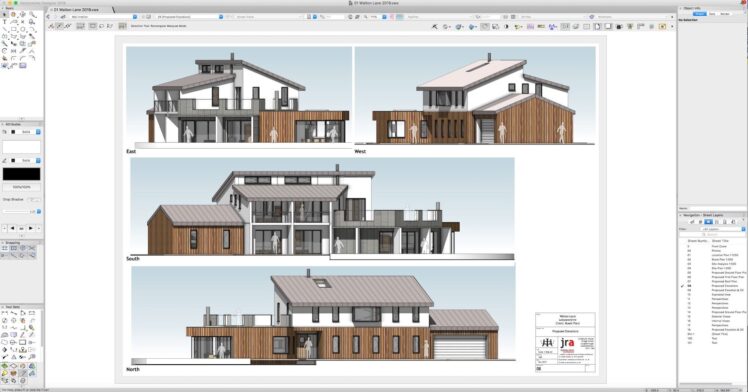Table of Contents
The construction industry is a key part of the economy in many developed and developing countries. It helps to ensure that business growth and expansion can take place by building suitable infrastructure, including road links and new building projects. In the residential sector, there’s currently a high demand for new-build homes in many western countries, and the construction industry plays a vital role in delivering the growth of such areas.
The market outlook for the construction sector is currently optimistic. The demand for new buildings and infrastructure fuels the growth of the industry and the whole sector is expected to grow at a CAGR of 7.4% between 2022 and 2031.
This industry is an important employer of both a semi-skilled and skilled workforce and is an important contributor to the total GDP of most countries. While the industry suffered considerable levels of disruption during the recent pandemic, the medium- and long-term outlook for the sector is extremely optimistic.
If your firm specializes in some niche of the construction industry, you may be looking for unique ways to improve its operations. Increasing worker safety levels, working more productively, and marketing your firm are just some of the key considerations that can help to improve your firm.
In this article, four unique ways to improve your construction business will be explored in detail. These strategies will be suitable for a range of construction businesses, regardless of their specific operations within the wider industry.
1. Hire an industry-specific marketing team

If your construction firm is small or hasn’t been in operation for years, you may notice that it’s difficult to gain a presence in the marketplace. Larger or more well-established firms may be more visible than your company, and this can lead to them having a higher chance of success in securing larger or more prestigious building contracts.
In the construction industry, promotion is vitally important to enable your firm to develop a strong reputation and gain recognition among other businesses. In the early years of your company’s growth and development, you may need to rely on word-of-mouth promotions, by building a reputation for quality and reliability.
However, when you seek to take your business to the next level of growth and build the brand of your firm, it’s important to consider hiring a marketing agency that has extensive experience in the construction sector.
Marketing teams such as RSM Marketing have a wealth of experience in the construction industry and can use that knowledge to transform your business and take it to higher levels of growth.
In modern times, there’s a need for construction firms to have a dedicated website that follows the best practices of SEO to ensure that it ranks highly on organic web searches. In addition, construction firms need to consider social media platforms as a place to promote and publicize their businesses, leading to improved brand awareness in the sector.
A dedicated marketing team can help with all these promotional activities, ensuring that your business can stand out in the increasingly crowded construction industry.
2. Comprehensive safety training

Safety in the construction industry is an important consideration for any firm. This area of work typically has the sixth-highest rate of accidents across the whole economy, and in some cases, they can lead to life-changing injuries or even the loss of life.
It’s therefore of particular importance within this sector to ensure that comprehensive safety training is provided for all your staff. This should ideally occur as part of the onboarding process for new starters and should be supplemented with annual training in health and safety.
The training should encompass safe manual handling techniques, when and how to use safety or protective equipment, and the precautions to take when working from height or in potentially unsafe environments (e.g., the need to make dynamic risk assessments when starting work at a potentially dangerous site).
This safety training should be complemented by a robust accident and incident reporting system for your company. Staff should feel confident when submitting incident reports for accidents and near-misses, and management should take steps to analyze this information, ensuring that lessons are learned, and the likelihood of a reoccurrence is minimized.
3. Retain your best staff

As your company grows, you may need to take on additional staff to cope with extra construction contracts. In addition, you may find that over the years, you’ve managed to cultivate an increasingly adept workforce who have thousands of hours of time-served skills and industry knowledge.
These highly skilled staff are vital for the continued success of your business as they’ll be able to work to the highest standards of quality and output. The challenge is to make sure you retain them so they don’t look elsewhere for employment and your firm loses some of its best staff.
To ensure high levels of staff retention, it’s important to offer all employees an attractive base salary that’s competitive in the industry. This can be supplemented by adding a comprehensive employee benefits package that provides a range of healthcare benefits for staff and their families along with other incentives.
These measures will ensure that staff don’t leave your firm to work in a similar trade for improved wages or seek employment that offers improved benefits as standard.
4. Use CAD software for construction designs

A wide range of construction firms will need to plan and design their project work to ensure that it’s produced to the required standards, and dimensions, and a predetermined budget.
Traditionally, the design of construction projects was completed by technical drawing staff or architects who were highly skilled in this field. However, the design process was time-consuming and costly with any modifications having the potential to require a complete redesign at the draft stage.
Thankfully in 2024, many construction firms are now using CAD software to undertake this part of the project. These applications allow the design to be accurately modeled in a far quicker timeframe than could have been previously achieved.
In addition, any modifications to the plans can be added to the existing work without needing a complete redesign. In short, all firms that need to design their construction projects should invest in this technology to enjoy the cost and time savings.

